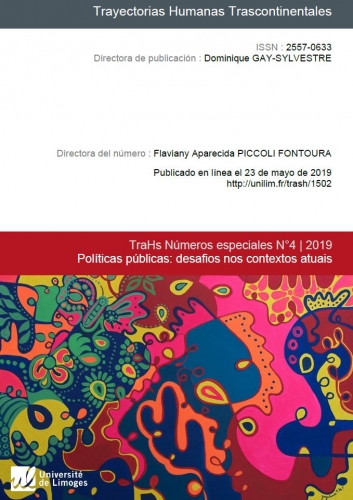Las políticas públicas como campo del saber han ocupado notoria centralidad para debatir grandes cuestiones sociales, económicas y ambientales. Las discusiones pasan entre las más distintas problemáticas, tales como las áreas de la educación, salud, vivienda, desarrollo sostenible, reconocimiento social, entre otras. A priori, se indica que los desafíos para una implementación de políticas públicas traspasan una superación de lógica que instituye fronteras entre sectores y por la construcción de estrategias que consideren diversidad, componiendo la esencia para el desarrollo humano, la formación de la ciudadanía y la promoción de igualdades. Las políticas públicas son importantes por mediar el desarrollo de la sociedad y de las capacidades humanas. “Ellas son mediaciones que garantizan los derechos humanos y la ciudadanía [y] de acceso universal”.
Las políticas públicas establecen padrones en los planos gubernamentales, lo que hace con que las acciones puedan ser pensadas de forma ordenada y de acuerdo con las demandas e intereses sociales. Recurren, de esta manera, un camino con objetivos y propósitos discutidos y encadenados que predicen resultados, para que la acción pública sea eficiente en la generación de efectos, figurando como actividades construidas con la participación de la sociedad y destinadas al interés colectivo.
El contexto político actual amenaza constantemente las políticas públicas, una vez que ellas van dirigidas al bien estar de la sociedad. Dicha amenaza surge a partir del modelo de desarrollo, el cual actualmente es hegemónico y que legisla según los intereses de tan solo una parcela de la población, la que detiene el poder económico y político. Este número especial de la Revista Trayectorias Humanas Transcontinentales de la Red
Internacional de América Latina, África, Europa y Caribe (ALEC) “Territorios, Poblaciones Vulnerables, Políticas Públicas”, de la Universidad de Limoges (Francia), tiene el propósito de unir y divulgar contribuciones en el campo de las investigaciones científicas de diversos países, a fin de reflexionar sobre las políticas públicas; y remitir a la vez la importancia de comprenderse cómo se presentan en su constitución, en la medida en que existe una íntima relación con las características de cada realidad social.
